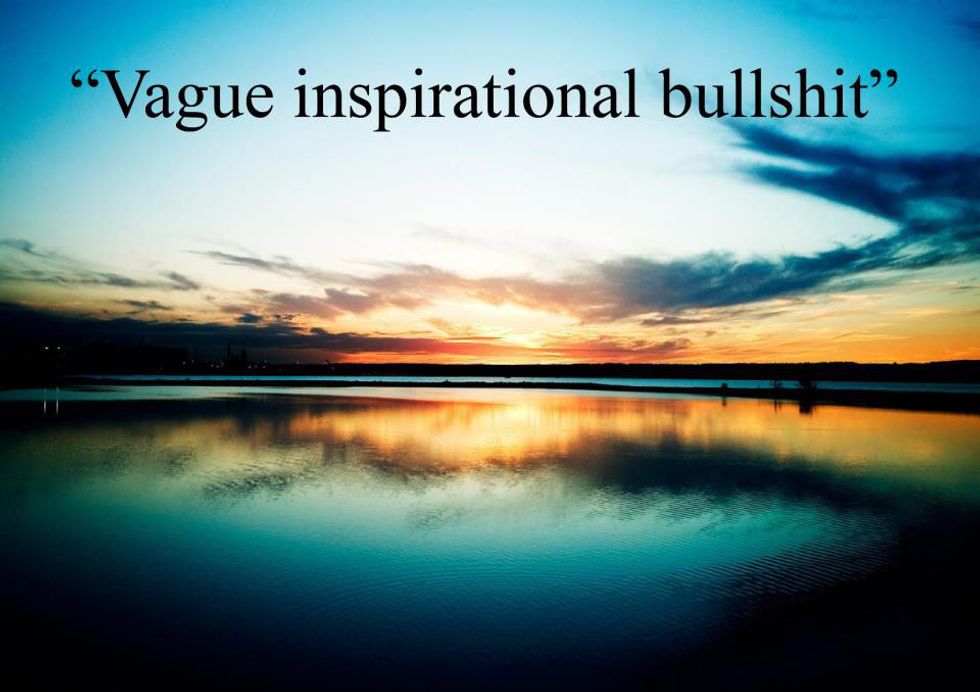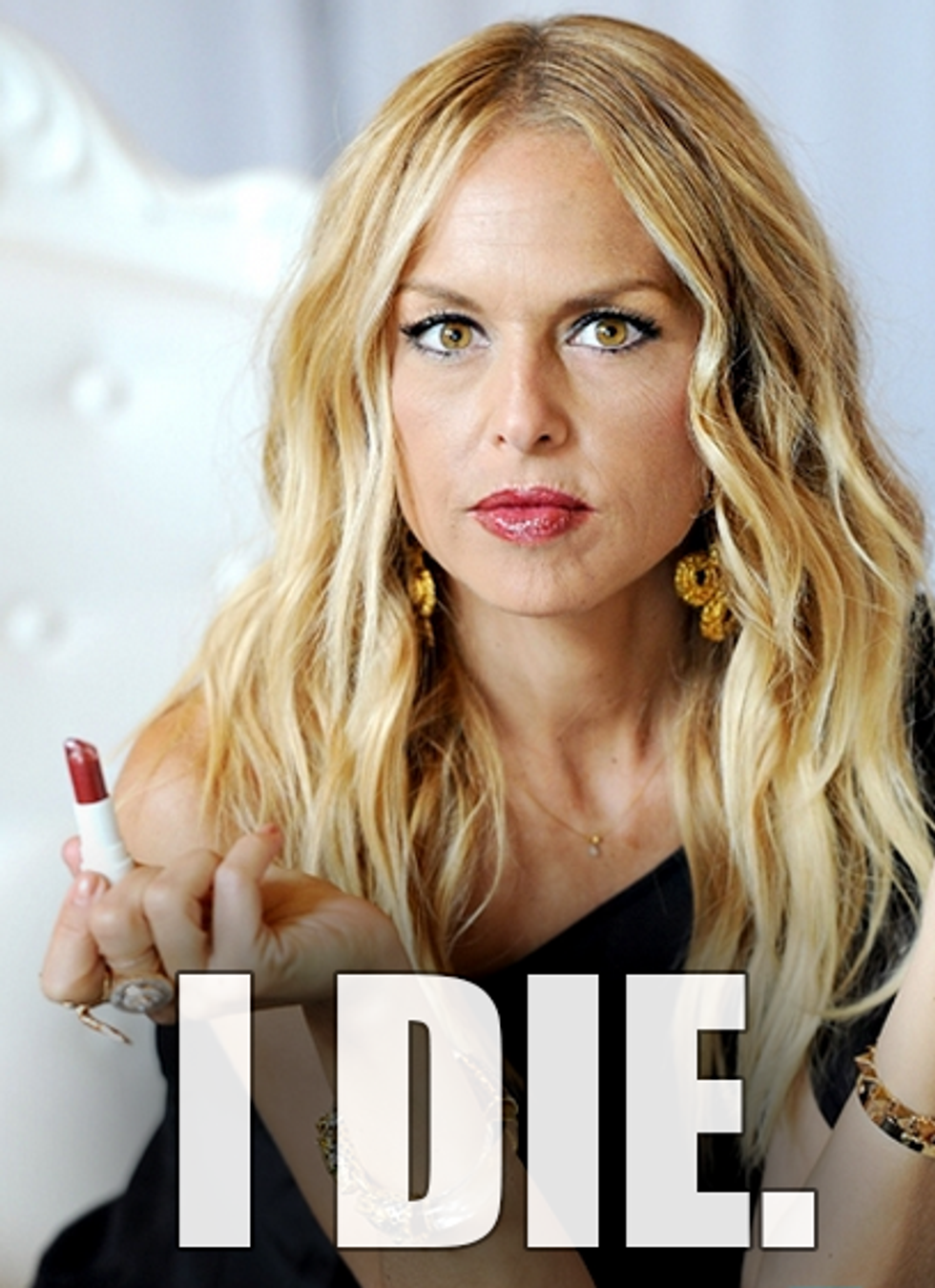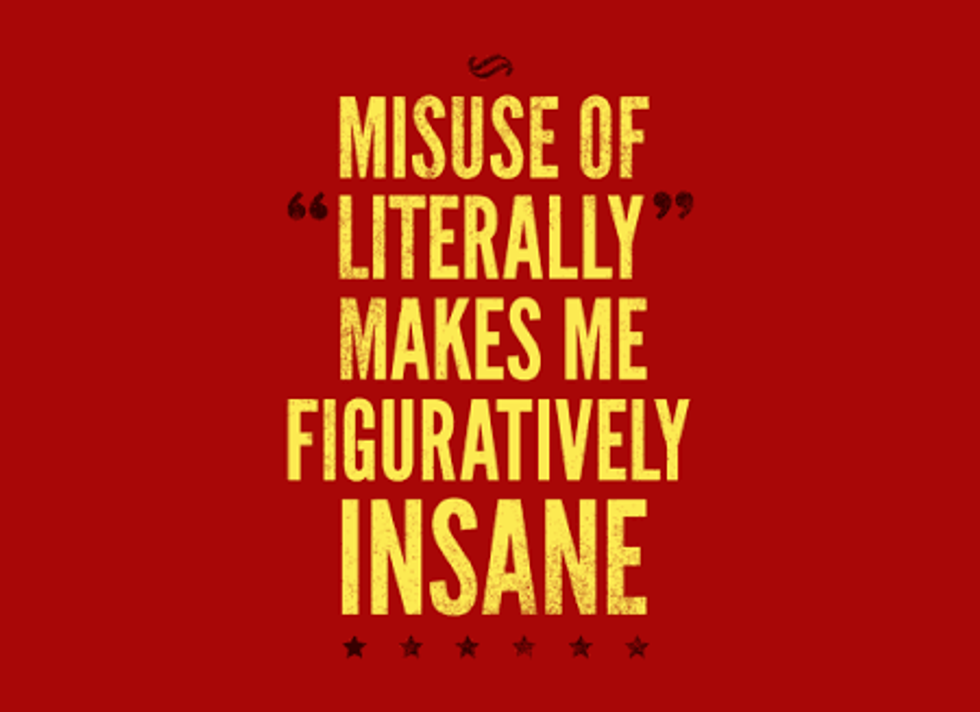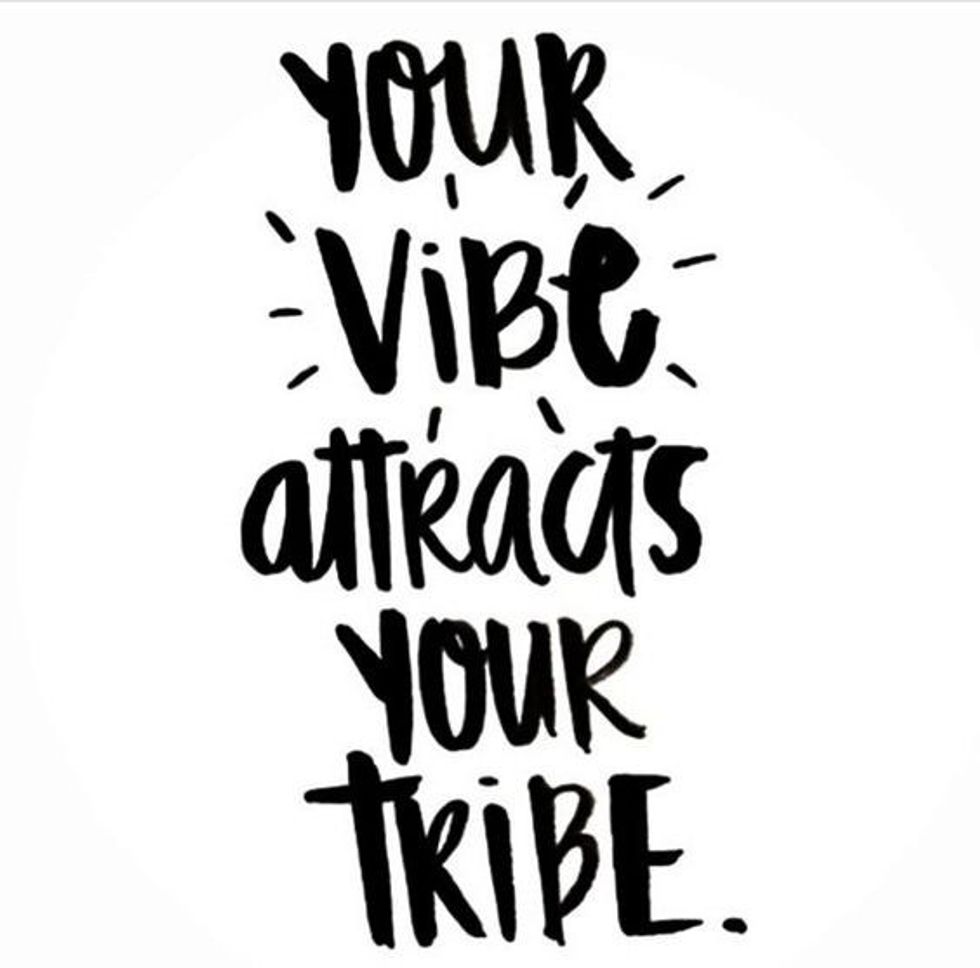I’m not about to contribute to negative attitudes held towards my generation. Though we are far from being the worst thing to happen in the world (as many older people accuse us) as someone who’s a stickler for personal accountability, I think we could use some improvement in our use of language.
This isn’t to say I think we swear too much (every generation is guilty of that) or that under proper circumstances that slang is not a valid form of expression; this is merely a critique of lazy word use and over-usage of terms we give no thought to. Robin Williams’ character in “Dead Poets Society” explains it as such, “Avoid using the word ‘very’ because it is lazy. A man is not very tired, he is exhausted. Don’t use very sad, use morose.” While the term “Generation Me” is a controversial one, used to describe people in their 20s and 30s, I do think “Generation Lazy Speech Patterns” or “Generation—Could Use a Thesaurus” are more than accurate superlatives for what passes as communication these days among people my age.
Here are some examples of how people are unoriginal and lack depth in the way they talk to other people. If you engage in the following faux pas, it may be time to download the dictionary/thesaurus app and get to work on finding better ways to express yourself.
platitude
ˈpladəˌt(y)o͞od/
noun
- a remark or statement, especially one with a moral content, that has been used too often to be interesting or thoughtful.
Or as I like to call them- Kardashianisms. This overused form of communication full of trite and meaningless turn-of-phrase is exactly what is wrong with the way people talk. If I had a nickel for every time I heard someone say, “Look on the bright side” or “Karma comes back around” well you get the picture... Platitudes are a lazy attempt at making someone feel better while somehow also managing to sound self-righteous. Statements would carry more weight if they weren’t so trite and unoriginal; so the next time your friend is sad don’t feed them some meaningless bullshit like “it gets better” or “think positive”, maybe listen to what is actually upsetting them and find something that would actually cheer them up like “I know you’re hurting and I’m here for you” or “What would make you feel better?” or hell “It’s okay to be sad, take all the time you need. I’m here for you no matter what.”
It’s easy to fall into Kardashianism territory because as Americans, we’re afraid of negative feelings; so much so we immediately jump to using generic terms in fancy font on Hallmark greeting cards thinking they somehow make people feel heard, validated and less alone—they don’t! You are not a inspirational speech poster, don’t talk like one.
hyperbole
hīˈpərbəlē/
noun
- exaggerated statements or claims not meant to be taken literally.
I my self am guilty of hyperbolic use of language (but with the strictest of irony). Most people my age unfortunately, never seem to understand that hyperbole is not a valid form of expression unless it is used ironically. Most people I know use hyperbole without a hint of teasing because it’s gotten so engrained into our vernacular that it is difficult to tell whether someone is serious or not. It’s never that you like something you’re “OB-SESSED” with it or that you enjoy a certain type of candy you’re “ADDICTED”, you know words that imply a much deeper issue; like you should probably see a therapist type of issue. It seems that it’s not enough in this day in age to merely think something is awesome or gross or admirable, you have to take that and multiply it by 1000. One would think that by using words that are on #teamextra would make for good emphasis but they don't because these words have also become banal and meaningless from over use. I also blame the Kardashians for this one, also Rachel Zoe.
Gratuitous use of the word literally
lit·er·al·ly
ˈlidərəlē,ˈlitrəlē/
adverb
- in a literal manner or sense; exactly.
This one makes me figuratively lose my damn mind. Literally does not add extra emphasis to a statement, it just makes you look like someone who doesn't know what the word means. "I literally just ate breakfast" is inconsequential and sounds weird, like does anyone figuratively eat breakfast? Of course not! The only time one should use the word literally is when it literally applies to the statement (see what I just did there?)
Not Letting Words Die AKA
cliché
klēˈSHā/
noun
plural noun: clichés; plural noun: cliches
1. a phrase or opinion that is overused and betrays a lack of original thought.
I understand that slang within reason has always been part of the English vernacular. It is a valid form of expression (and one of my personal favorites) in informal settings. What to me is irritating to no end is the over-use of words to the point where they become meaningless stand-ins for every single thing! An example of this is the word “vibes”. Vibes seems to now be an appropriate descriptor for anything from a beat to a song to someone’s Coachella outfit; when really the term stems from the word "vibration" and is meant to convey ones' emotional state or the atmosphere of a place as communicated to or felt by others. I don’t see what that has to do with an inanimate object, other than sheer laziness. Instead of using vibes as a descriptor for everything how about “I like the 1970s aesthetic of your outfit, it’s very chic” or “This song reminds me of _________, I really dig it.” This word has really become the new "swag" or "bae" so stop using it, like now! This is only one example but I think you get the gist.
Ugh, just no!
Speak deliberately; we’re better than this. I think as a generation we’re capable of much more than deriving all of our words and phrases off of a tee-shirt—start speaking like it!














 man running in forestPhoto by
man running in forestPhoto by 









